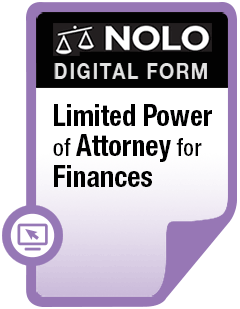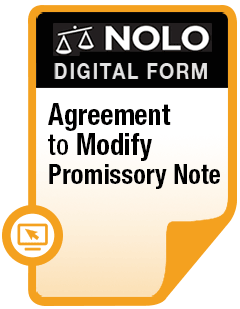The Florida Telemarking Act protects consumers from telemarketers.
Florida has many laws that protect consumers, such as the Florida Consumer Protection Law and the Florida Telemarketing Act. These laws protect people from aggressive sales tactics and deceptive telemarketing practices by:
- limiting what telemarketers can and can't do in the state of Florida, and
- providing a way for consumers to avoid harassing sales calls and deal with telemarketers who violate the law.
On July 1, 2021, legislation imposing new restrictions on telemarketing calls went into effect. These amendments to the Florida Consumer Protection Law and Florida Telemarketing Act created a new private right of action and are similar to the federal Telephone Consumer Protection Act (TCPA).
- What Are the Florida Restrictions on Telemarketers?
- How Do I Know If a Telemarketer Is Breaking the Law?
- What Can I Do If I Receive a Telemarketing Call That Violates the Law?
- What Are the Penalties for Violating Florida Telemarketing Restrictions?
- How Can I Protect Myself From Telemarketers?
- What Are the Common Telemarketing Scams in Florida?
- Where Can I Find More Information Related to the Telemarketing Act?
- Talk to a Lawyer
What Are the Florida Restrictions on Telemarketers?
Telemarketers in Florida must comply with very strict restrictions, including when they can call you and what they must say when they call.
What Hours Can a Telemarketer Call?
Telemarketing curfews limit the times that telemarketers can call potential customers. In Florida, telemarketers may call you only between 8:00 a.m. and 8:00 p.m. (Previously, telemarketing calls could be made until 9:00 p.m.) (Fla. Stat. § 501.616 (2024).)
Telemarketers Can't Block Caller ID
Under Florida law, telemarketers may not block their name or number from showing up on your caller identification system. (Fla. Stat. § 501.616 (2024).)
Telemarketers Must Say Certain Things When You First Pick Up the Call
From the time you answer the call, the telemarketer has 30 seconds to state that person's true name, the name of the company the telemarketer represents, and the goods or services being sold. (Fla. Stat. § 501.613 (2024).)
If a sale or an agreement to purchase is completed, the seller must inform the purchaser of the purchaser's cancellation rights (see below), state the license number for both the seller and the salesperson, and give the seller's street address. (Fla. Stat. § 501.613 (2024).)
Telemarketers Must Tell You About Your Right to Cancel
If you agree to buy the goods or services that the telemarketer is offering, the telemarketer must provide you with information about your right to cancel the agreement. (Fla. Stat. § 501.613 (2024).)
Under Florida law, you're generally entitled to a refund if you return the goods or make a written request for a refund within seven days after you receive the goods or services. (Fla. Stat. § 501.615 (2024).)
Limitation on the Number of Telemarketing Calls
A commercial telephone seller or salesperson may not make more than three solicitation phone calls from any number to a person over a 24-hour period on the same subject matter or issue, regardless of the phone number used to make the call. (Fla. Stat. § 501.616 (2024).)
Callers Must Get Consent Before Making "Telephonic Sales Calls" Using an Autodialer
Florida law now requires callers to get prior express written consent before placing a "telephonic sales call" (see below) using an autodialer. The law says, "A person may not make or knowingly allow a telephonic sales call to be made if such call involves an automated system for the selection or dialing of telephone numbers or the playing of a recorded message when a connection is completed to a number called without the prior express written consent of the called party." (Fla. Stat. § 501.059 (2024).)
The law defines a "telephonic sales call" as "a telephone call, text message, or voicemail transmission to a consumer for the purpose of soliciting a sale of any consumer goods or services, soliciting an extension of credit for consumer goods or services, or obtaining information that will or may be used for the direct solicitation of a sale of consumer goods or services or an extension of credit for such purposes." (Fla. Stat. § 501.059 (2024).)
The "prior express written consent" must include:
- the signature of the called party
- clear authorization for the placement of a call, text, or voicemail using an autodialer
- the authorized number to which a telephonic sales call can be delivered, and
- clear and conspicuous disclosures that the called party is authorizing automated communications and about the called party's right to withhold consent. (Fla. Stat. § 501.059 (2024).)
Telemarketers Must Have a License to Operate in Florida
Businesses and salespeople that engage in telemarketing must obtain a license from the Florida Division of Consumer Services (the entity that manages telemarketing activities in the state) before operating in Florida.
If you want to find out if a particular business or salesperson holds a Florida telemarketing license, go to the Division of Consumer Services website. Enter the name of the company or salesperson in the "Name" search box.
How Do I Know If a Telemarketer Is Breaking the Law?
The Florida Telemarketing Act applies to businesses located within the state that make telemarketing calls and businesses in other states that call Florida residents. But certain entities—like religious organizations, newspapers, banks, charities, and political organizations—are generally exempt from some of Florida's telemarketing laws. (Fla. Stat. § 501.604 (2024).) If a non-exempt telemarketer violates any of the abovementioned laws, that telemarketer is breaking the law.
Florida law includes a rebuttable presumption that a telephonic sales call made to any area code in Florida is made to a Florida resident or to a person in Florida at the time of the call. (Fla. Stat. § 501.059 (2024).)
What Can I Do If I Receive a Telemarketing Call That Violates the Law?
If a caller violates any of Florida's requirements or restrictions on telemarketers, you can do one or more of the following things.
File a Complaint With the Florida Division of Consumer Services
To report a violation, file a complaint online with the Florida Division of Consumer Services or call 800-HELP-FLA (435-7352). If the department believes the telemarketer is in violation of the law, it will take action against the telemarketer. Violators of Florida's telemarketing laws are subject to a civil penalty of $10,000 per violation and possibly criminal penalties as well.
Get a Refund
Again, Florida law generally provides you with the right to get a refund if you return the goods or make a written request for a refund within seven days of receiving the goods or services. (Fla. Stat. § 501.615 (2024).)
File a Lawsuit Against the Telemarketer
As of July 1, 2021, Florida law creates a private right of action for violations of the "telephone solicitation" section of the Florida Consumer Protection Law, including using an autodialer to call a consumer without prior express written consent and failing to follow do not call requests or avoid calling numbers on the Florida do not call list. (Fla. Stat. § 501.059 (2024).)
What Are the Penalties for Violating Florida Telemarketing Restrictions?
If a caller violates the law, you can ask a court for an injunction or recovery of your actual money damages or $500, whichever is greater, with the possibility of damages up to $1,500 for willing or knowing violations. You can probably also recover attorneys' fees. (Fla. Stat. § 501.059 (2024).)
How Can I Protect Myself From Telemarketers?
To avoid unwanted telemarketing calls, screen calls your calls to avoid them. Hang up on telemarketers if you happen to answer one of the calls but don't want to talk to the telemarketer.
Also, add yourself to the available do not call lists. Do not call lists protect consumers from unwanted calls from telemarketers.
Add Yourself to the National Do Not Call List
The Federal Communications Commission and Federal Trade Commission maintain a national do not call list. The registry is nationwide and applies to all telemarketers, though certain organizations, such as non-profit organizations, are exempt. You can add your number to this database by visiting the Federal Trade Commission website.
Add Yourself to the Florida Do Not Call List
Some states, including Florida, have their own do not call list. If you opt into the Florida do not call list, telemarketers can't contact you on your residential phone, cell phone, or paging device. You can sign up for the Florida do not call list at the Florida Division of Consumer Services website. Under prior law, your number would remain on the list for five years. Now, however, your registration won't expire. (Fla. Stat. § 501.059 (2024).)
Opting Out of Calls From a Particular Company or Organization
Under Florida law, if you tell a telemarketer you no longer wish to receive telemarketing calls from that company, the telemarketer must stop calling you. This law also applies to charitable organizations seeking charitable contributions. (Fla. Stat. § 501.059 (2024).)
What Are the Common Telemarketing Scams in Florida?
According to the Florida Division of Consumer Services, common telemarketing scams in Florida include offers involving foreign lotteries, prizes, investment opportunities, and "free" or "low-cost" vacations.
Where Can I Find More Information Related to the Telemarketing Act?
The Florida Consumer Protection Law is located at Fla. Stat. §§ 501.001 and following and includes the Florida Telemarketing Act at Fla. Stat. §§ 501.601 through 501.626 and Florida's do not call law at Fla. Stat. § 501.059. Statutes change, so checking them is always a good idea. And some rules can even vary within a state. These are just some of the reasons to consider consulting a lawyer if you have questions about the law.
Also, the Florida Division of Consumer Services provides information on telemarketing, including consumer FAQs and other resources.
Talk to a Lawyer
If you want to learn more about your rights under Florida's telemarketing laws or to file a suit against a telemarketer, consider talking to an attorney.
Talk to a Lawyer
Need a lawyer? Start here.
How it Works
- Briefly tell us about your case
- Provide your contact information
- Choose attorneys to contact you
- What Are the Florida Restrictions on Telemarketers?
- How Do I Know If a Telemarketer Is Breaking the Law?
- What Can I Do If I Receive a Telemarketing Call That Violates the Law?
- What Are the Penalties for Violating Florida Telemarketing Restrictions?
- How Can I Protect Myself From Telemarketers?
- What Are the Common Telemarketing Scams in Florida?
- Where Can I Find More Information Related to the Telemarketing Act?
- Talk to a Lawyer
- Briefly tell us about your case
- Provide your contact information
- Choose attorneys to contact you



